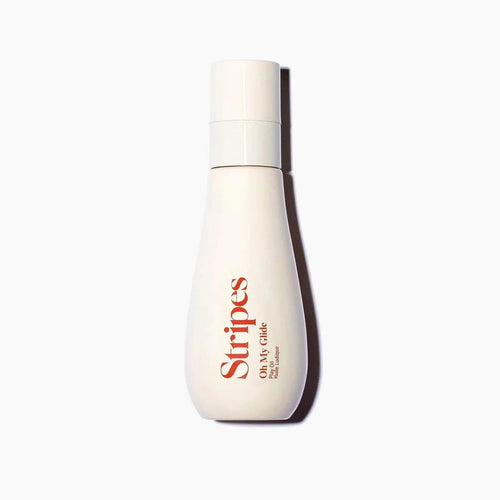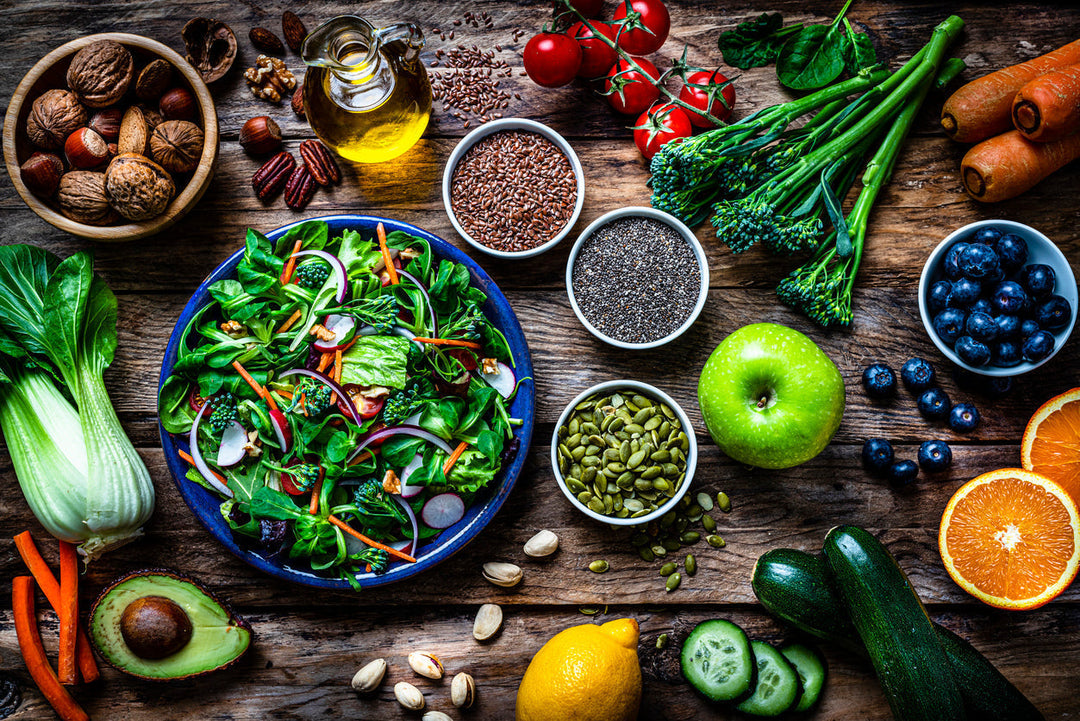12 Foods That Help Balance Hormones in Women
Apr 21, 2025
Hormones control everything from your mood and energy levels to metabolism and reproductive health. When they’re balanced, you feel great. But when they’re out of whack? Hello, fatigue, bloating, acne, and unpredictable mood swings.
Fortunately, here’s some good news: what you eat can make a huge difference. Certain foods can help support hormone production, reduce inflammation, level out blood sugar, and keep everything running smoothly. Let’s dive into the best hormone-balancing foods you should be adding to your plate.
1. Fatty fish (salmon, mackerel, sardines)
Certain types of fish are packed with omega-3 fatty acids, which play a big role in hormone production and reducing inflammation. They can also help regulate cortisol (your stress hormone) and improve insulin sensitivity, making them a great choice for balancing hormones naturally. Bonus: Omega-3s have been linked to better mood and brain function. So if you’ve been feeling foggy or irritable, it might be time to add more fish to your diet.
2. Cruciferous vegetables (broccoli, kale, brussels sprouts)
These veggies contain compounds that help your body process excess estrogen — a common cause of hormonal imbalance. They’re also rich in fiber, which supports gut health (and good gut health is key for hormone regulation). A study published in The Journal of Nutrition found that women who ate more cruciferous vegetables had better estrogen metabolism, meaning their bodies processed and eliminated excess estrogen more efficiently.
3 Soy (tofu, tempeh, edamame)
Soy gets a bad rap, but research suggests that in moderate amounts, it can actually help balance estrogen levels, especially during menopause. That’s because soy contains phytoestrogens — plant compounds that mimic estrogen in the body. A 2021 study found that women who consumed soy for 12 weeks had an 84% decrease in moderate to severe hot flashes.
4. Nuts and seeds (almonds, walnuts, flaxseeds, chia seeds)
Adding nuts and seeds to your diet can do so many wonderful things. Flaxseeds are especially powerful because they contain lignans, which help balance estrogen levels. Meanwhile, walnuts and almonds provide healthy fats that support hormone production and reduce inflammation. Pro tip: Sprinkle flax seeds on your oatmeal or blend them into a smoothie for an easy hormone-boosting addition to your breakfast.
5. Whole grains (quinoa, brown rice, oats)
If you struggle with blood sugar crashes, whole grains are your best friend. They’re full of fiber, which slows down the release of sugar into the bloodstream and helps keep insulin levels stable. One study found that women who ate more fiber had lower estrogen levels, reducing their risk of hormone-related issues.

6. Avocados
Avocados are full of healthy fats that support hormone production — particularly estrogen and progesterone. They also contain plant sterols, which help regulate cortisol levels and keep stress hormones in check. If you needed another reason to eat more guacamole, this is it.
7. Berries (blueberries, strawberries, raspberries)
Berries are packed with antioxidants that fight inflammation and support hormone health. They also help stabilize blood sugar levels, which is crucial for preventing insulin spikes and crashes.
8. Leafy greens (spinach, swiss chard)
Magnesium is a key mineral for hormone balance, and leafy greens are loaded with it. Magnesium helps reduce PMS symptoms, regulate cortisol, and improve sleep quality — all of which are essential for keeping hormones in check.
9. Eggs
Eggs contain essential nutrients like choline and vitamin D, both of which play a role in hormone production. Plus, they’re a great source of high-quality protein, which helps stabilize blood sugar levels and prevent energy crashes.
10. Fermented foods (yogurt, kefir, sauerkraut, kimchi)
Your gut health and your hormones are closely connected. Fermented foods are rich in probiotics, which help maintain a healthy gut microbiome. A balanced gut supports hormone metabolism, making it easier for your body to process and eliminate excess hormones.
11. Herbs and spices (turmeric, cinnamon)
Turmeric has anti-inflammatory properties that support hormone health, while cinnamon can help improve insulin sensitivity. Try adding a sprinkle of cinnamon to your coffee or oatmeal, and use turmeric in soups or stir-fries for an extra hormone-balancing boost.
12. Green tea
Green tea contains antioxidants that help regulate insulin and support metabolic health. It’s also been shown to reduce stress and improve brain function — both of which are crucial for keeping hormones balanced.
Foods to cut back on
While adding hormone-friendly foods to your diet is important, cutting back on certain foods can help too. Try to limit:
-
Processed foods: High in unhealthy fats and added sugars, which can throw hormones off balance.
-
Refined sugars: Cause insulin spikes, leading to energy crashes and increased cravings.
-
Caffeine and alcohol: Too much can interfere with cortisol levels and disrupt sleep.
Lifestyle can help balance hormones, too
Food is a major factor, but your daily habits also play a role in keeping hormones balanced. Here are a few things that can help:
-
Regular exercise: Helps regulate insulin and reduce stress hormones.
-
Managing stress: Chronic stress increases cortisol, which can throw everything else off. Try yoga, meditation, or deep breathing.
-
Prioritizing sleep: Aim for 7-9 hours a night to support hormone production.
By incorporating more of these hormone-friendly foods into your diet and making a few lifestyle adjustments, you can support your body and help balance your hormones naturally. And remember: everyone’s body is different. If you’re dealing with persistent hormonal imbalances, checking in with a doctor or nutritionist can help you find the best approach for you.








